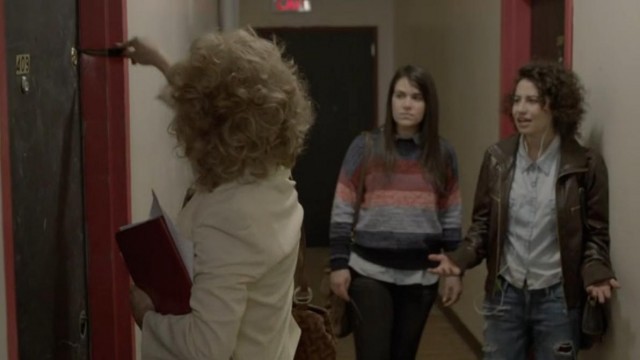The People You Have to Trust to Rent an Apartment

First, you have to trust that the Craigslist post is real.
It’s pretty easy to suss out the people who are just in it to pass around fraudulent money orders. But once you get past that part and set up a time to view the apartment, you have to trust that the person you meet at the building is, in fact, the landlord. You have to trust that the unit they are showing you is, in fact, for rent. You have to trust that it is okay to walk into a building with a person you don’t know.
There are checks you can do for all of this, of course. You can look up property records and confirm the person you are going to meet is in fact the owner of the building, but that only proves that the name on the property record and the name on the Craigslist email you received match. So then you start searching online for photographs, to make sure the person you meet matches the photo of the person he or she claims to be.
You’re doing all of this in about 10 minutes, by the way, because you need to be the first person to the listing after it posts.
As you input the address into your Lyft app, you start running if:then scenarios in your head. If the person matches the picture. If the person keeps the unit door open. You text people your location as well as the name of the person you are scheduled to meet and any contact information you have received.
You’ve got to trust the Lyft driver, too. While you’re at it.
Once you arrive at the unit, you have to trust that everything you hear is true. Yes, the other tenants don’t make a lot of noise. Yes, the heat works. You are the type of person who will turn on the faucets and check the water pressure, and you are definitely the type of person who will say the words “secondary egress,” and then when the landlord looks puzzled, follow up with “in case of fire” — but you cannot also be the type of person who visits the apartment “at least three different times, including once at night,” to check noise and traffic and the light that might shine into your windows from other buildings. You read that advice on apartment blogs and think “in what universe does that even happen?” You have maybe 10 minutes in this apartment before you have to decide whether you want to write a check.
You have to trust that the person to whom you just gave your Social Security and driver license numbers is actually going to do a background and credit check. You have identity theft insurance as part of your renter insurance package, just in case. You have to trust that this isn’t going to be one of those situations where they show the apartment a dozen times, collect a bunch of application fees, and then never rent the apartment.
When you sign and pay a holding deposit, you have to trust that a holding deposit is real even though you have never heard of one before. You do a lot of Google searching on that one, too. You have to trust that the piece of paper you’re holding that states you are entitled to the apartment is, in fact, a binding piece of paper.
When you sign the lease and pay first/last, you have to trust that the keys will arrive as scheduled. The internet advice is conflicting on this topic; you have tenant websites that say “never write a check until the keys are in your hands,” and you have landlord websites that say “never give out keys until the first and last month rent checks have cleared.” You decide you are just going to trust this, because the other option is to continue reading the pages of rental scam websites that are the equivalent of WebMD.
You might have to trust movers at some point. You look up articles about movers that put your belongings into their truck and then either A) demand additional cash before they’ll give them back or B) disappear forever, and then you close the tab.
Then you realize, with a feeling that is kind of like being on an apartment service elevator that suddenly stops working, that you have to trust yourself. You have to trust that you’ll be able to keep working and earning money. You have to trust that adding another $320 to your monthly overhead cost isn’t going to break your finances. You’ve done the math on this, running your new monthly overhead against various income projections (including one where you only earn $3,000 per month instead of $5,000–6,000), and the numbers all fit. Even if you earn less money, you’ll be okay. But you have to trust that you’re going to be able to earn some money.
You start looking at your upcoming freelance work and thinking about client growth. Who to pitch next, which clients you’d like to add to your portfolio, and so on. You have to trust that your industry will not disappear. You don’t have an exit strategy if your entire industry disappears, except some vague idea about working at a coffee shop. You open up The Awl and then close it again.
To rent an apartment, you have to trust the entire internet. Not only the people you meet through the internet, but the internet as a concept. Or maybe as a structure. You’re not too sure about this one.
You’re also not sure if you trust too much, or too little. You decide to ask The Billfold’s readers what they think.
Support The Billfold
The Billfold continues to exist thanks to support from our readers. Help us continue to do our work by making a monthly pledge on Patreon or a one-time-only contribution through PayPal.
Comments